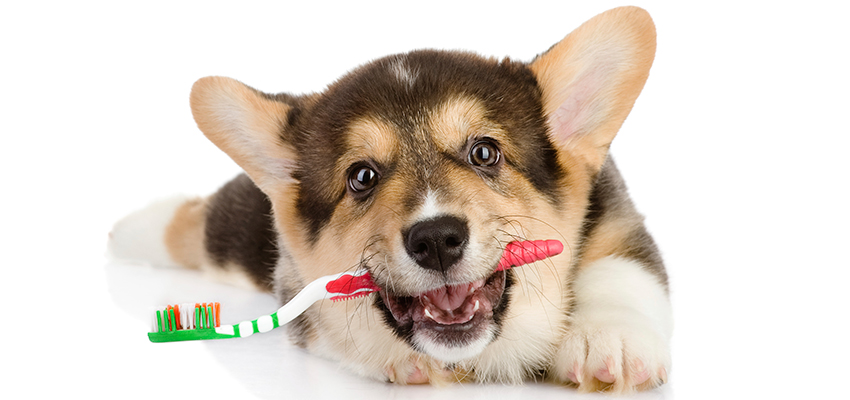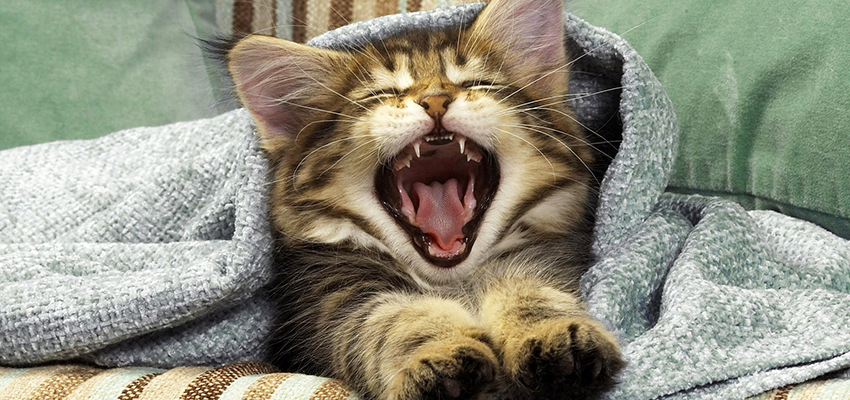North Shore Animal League America is taking 10 percent off pet teeth cleanings throughout the month of February in an effort to alert dog and cat owners of the importance of a proper dental regimen for their furry loved ones.
Tell the truth: When was the last time you gave any thought to your pet’s dental health? If it’s been a while—or maybe never—you’re not alone. Studies reveal that about two-thirds of pet owners do not provide the dental care recommended by their veterinarians.
That’s a big mistake. Even though pets don’t often get cavities, they are susceptible to periodontal or gum disease, which is the number one illness found in both dogs and cats. That’s why it’s so important that pet lovers include dental hygiene in their animals’ health and wellness routine.
“Just like with people, dental disease can lead to all sorts of major health issues for animals,” explains Dr. Mark Verdino, Senior Vice President and Chief of Veterinary Services at North Shore Animal League America. “Dental hygiene is as important to your pets’ overall health as nutrition and exercise.”
“Gum inflammation and tooth loss can be very painful to your animals and costly to treat,” he added. “But they also can lead to more serious conditions, including damage to the heart, lungs and kidneys.”
Estimates suggest that, by the time they are three years old, 80 percent of dogs and 70 percent of cats have oral disease. Some of the most common symptoms in both dogs and cats include yellow and brown build-up of tartar along the gum line; inflamed gums; and persistent bad breath. A change in eating habits or pawing at the mouth can also indicate dental disease.
Poor dental hygiene can lead to dental disease. Dental disease is caused by bacteria in the mouth and can result in oral pain, halitosis, tooth loss and periodontal disease, and it can even affect the heart, kidneys, intestinal tract and joints. Also, a pet in dental pain is not a happy pet, and the pain can affect his/her ability to eat.
Help prevent your pet from getting dental disease and add years to their life by following these important tips:
- Brush your pet’s teeth as early as possible. The best time to start a tooth-brushing regimen is when their adult teeth are in, at about 6-9 months old. But getting puppies and kittens used to the process earlier is important.
- Avoid dental products containing Xylitol; it is highly toxic to dogs and questionable to cats. NEVER use human toothpaste to clean pets’ teeth and gums.
- Schedule regular annual dental check-ups with your pet’s veterinarian. Dental problems often develop gradually; it’s easy to miss the signs until there is a bad infection.
During a dental exam at your local Pet Health Center, veterinarians will determine the status of your pet’s dental needs. If your pet needs more advanced dental care, your veterinarian will recommend the treatments needed and the approximate costs involved.
Call Animal League America’s Pet Health Center (516-883-2000) to schedule an appointment or email us at phc@animalleague.org.


































